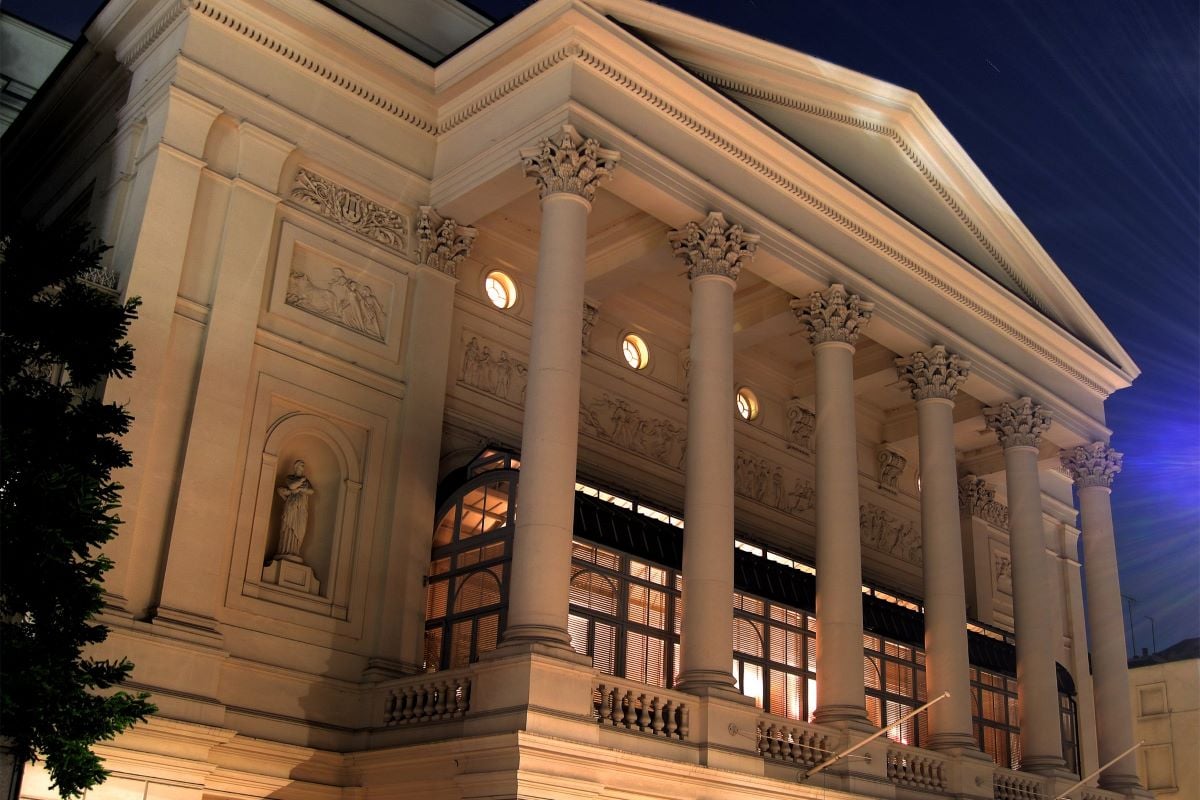
Arts Council England has cut the annual funding it provides the Royal Opera House by close to £3m a year
Photo: Peter Suranyi/Creative Commons
Royal Opera House seeks income boost through brand licensing drive
Efforts by the Royal Opera House to generate additional income in the wake of cut to its Arts Council England funding will focus on 'new commercial activities' and 'brand exploitation'.
A central plank of efforts by the Royal Opera House (ROH) to adjust to lower levels of funding from Arts Council England (ACE) will involve a focus on new commercial income opportunities, it has emerged.
The organisation's Annual Report 2021/22, published this week, reveals that while it made an operating profit of £2.8m for the 12 months up to 28 August 2022, up from £1.3m the previous year, significant financial challenges lay ahead.
Introducing the report, Sir Lloyd Dorfman, Chair of ROH's Board of Trustees, said these include the ongoing cost-of-living crisis, the war in Ukraine, the slow return of tourism to London, and reduced funding from ACE.
READ MORE:
- ACE reveals 'opera analysis' plan in response to backlash
- Additional £24m set aside for English National Opera
"We must also plan for the substantial renewal of our stage infrastructure and of our building," he said.
"These challenges will require exceptional hard work and strategic thinking to navigate."
As part of its investment programme for 2023-26, Arts Council England (ACE) cut the funding it gives to ROH by 11.5% from £25.2m in 2022/23 to £22.3m for the next three years.
Last week it emerged that a total of 15 National Portfolio Organisations (NPOs) have been granted extra funding by Arts Council England (ACE) to help them adjust to lower levels of income for the 2023-26 period through the £9m Transform programme.
The Royal Opera House was one of 37 NPOs receiving a cut to their ACE funding that did not receive support through the programme, but it is unclear whether they applied to it or not.
ROH's annual report states that the reduction in public funding poses the risk that the organisation has insufficient income to meet its needs, and that this affects the UK's overall "opera ecology", particularly the talent pipeline.
And while the report highlights the vital role of philanthropic support in helping the organisation bounce back from the impact of the pandemic, it also warns of "potential donor fatigue".
'Brand exploitation'
In order to address this, it has developed a Bridging the Gap, strategy.
In addition to a "new focus on brand exploitation and commercial", the strategy includes a pricing review "to increase box office yield".
The report adds that while this will take place, a "high percentage" of its tickets will "remain affordable", in line with its access and audience diversity aims.
ROH will also assess the potential benefit of increasing the number of summer ballet performances, and aim to reduce costs by investing in a digital transformation programme.
"We believe in the mixed funding model – comprising public and private support, box office, cinema and streaming revenues, and other commercial activities – and we will make the best use of our diversified income sources at a time of ongoing economic uncertainty," the report states.
"We already generate the majority of our own income but strive to find new commercial revenues and examine our assets through a new lens to establish what additional value we can realise while staying committed to our core objectives and mission."
ROH already works in a number of ways to generate income through its brand and commercial activities. This includes teaming up with a number of partner organisations that it licenses its brand to.
Current partners include British fine jewellery house Boodles, clothing brand Pepper & Mayne, and several publishers
Senior appointment
The renewed focus on this area of work will also see a senior level role created to drive changes.
The Chief Commercial Officer, recruitment for which is currently ongoing, will have responsibility for defining and overseeing the organisation`s commercial strategies and plans.
"Central to our strategic plans is our ability to grow commercial revenues significantly across all channels," the job advert states.
"[The Chief Commercial Officer] will lead all consumer and business to business revenue generating activities, with a focus on maximising the value of and commercial revenues from the ROH family of brands, IP, physical assets and talent relationships.
"They will conceive and deliver a marketing and communications strategy to strengthen the ROH reputation as a leading artistic force, with impact extending far beyond the stage in growing the audiences and artists of the future."
Opera was among the most affected artforms from ACE's funding decisions, with English National Opera (ENO), based in London being removed from the National Portfolio altogether.
Meanwhile, Glyndebourne, based in East Sussex, received a 50% cut, and Welsh National Opera saw a 35% cut.
Earlier this year ACE announced plans to conduct an independent analysis of opera and musical theatre following criticism of its investment plans.
Join the Discussion
You must be logged in to post a comment.